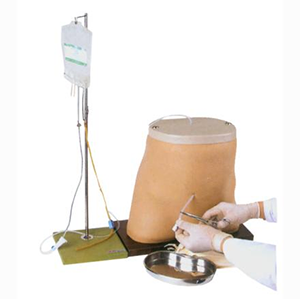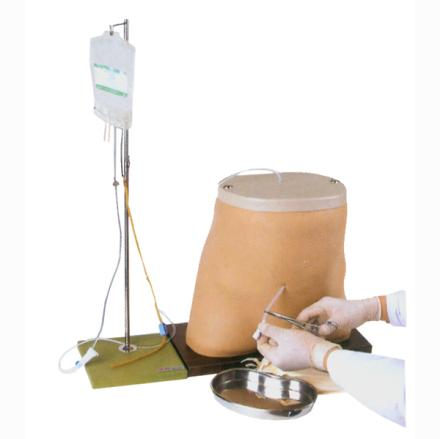
Peritoneal dialysis model: a new choice for healthy dialysis
Article tag: Peritoneal dialysis model medical clinical model

In the treatment of kidney diseases, peritoneal dialysis, as an important treatment modality, has been widely used. However, traditional peritoneal dialysis training and practice methods are often limited by actual conditions and operating experience, making it difficult to achieve ideal training results. In order to solve this problem, the peritoneal dialysis model came into being and became a new choice for healthy dialysis.
...
In the treatment of kidney diseases, peritoneal dialysis, as an important treatment modality, has been widely used. However, traditional peritoneal dialysis training and practice methods are often limited by actual conditions and operating experience, making it difficult to achieve ideal training results. In order to solve this problem, the peritoneal dialysis model came into being and became a new choice for healthy dialysis.

The peritoneal dialysis model provides a new training and practice platform for medical staff with its high degree of simulation and practicality. The model uses advanced medical materials and technologies to finely simulate the structure and function of the human peritoneum, allowing medical staff to feel various details of the real dialysis process when performing simulated operations. This highly simulated design not only helps medical staff become familiar with the operating procedures of peritoneal dialysis, but also makes them more comfortable in actual operations and improves the dialysis effect.
In addition to being highly simulated, the peritoneal dialysis model also has intelligent features. The model has built-in sensors and data analysis systems that can record and analyze data during the dialysis process in real time. Medical staff can use these data to understand the effect of dialysis, detect potential problems in time, and adjust treatment plans. This intelligent function not only improves the accuracy and efficiency of peritoneal dialysis, but also provides strong support for medical staff's clinical decision-making.
The peritoneal dialysis model has a wide range of applications, including teaching practice in medical schools and on-the-job training and skill improvement of medical personnel. In medical schools, models can help students understand the basic principles and operating procedures of peritoneal dialysis and master basic operating skills; in on-the-job training and skill improvement of medical staff, models can help them become familiar with peritoneal dialysis under different pathological conditions. operations to improve the ability to deal with complex situations.
In addition, the peritoneal dialysis model is convenient and reusable. The model is simple and convenient to operate, and medical staff can easily complete the simulation operation simply by following the instructions. At the same time, the model has been carefully designed and manufactured and can be reused multiple times, reducing training costs and improving economic benefits.
The emergence of the peritoneal dialysis model not only provides strong support for the training and practice of peritoneal dialysis, but also brings new hope for the treatment of kidney diseases. Through simulated operations and data analysis, medical staff can gain a deeper understanding of the mechanism and effects of peritoneal dialysis and provide patients with more personalized and precise treatment plans. At the same time, the intelligence and convenience of the model also make peritoneal dialysis training and practice more efficient and convenient.
In short, as a new choice for healthy dialysis, the peritoneal dialysis model provides strong support for the training and practice of peritoneal dialysis with its characteristics of high simulation, intelligence, convenience and reusability. We believe that with the help of the peritoneal dialysis model, peritoneal dialysis technology will be better promoted and applied, bringing better therapeutic effects and quality of life to patients with kidney disease.

Marketing Center
Hong Kong, ChinaProduction Base
Shanghai, ChinaProducts
Contact Us
 Address: Hong Kong, China
Address: Hong Kong, China
 Phone:+86 19937901373
Phone:+86 19937901373
 Email:sophia@adahealthy.com
Email:sophia@adahealthy.com
 Mobile:+86-0379-65160607
Mobile:+86-0379-65160607








